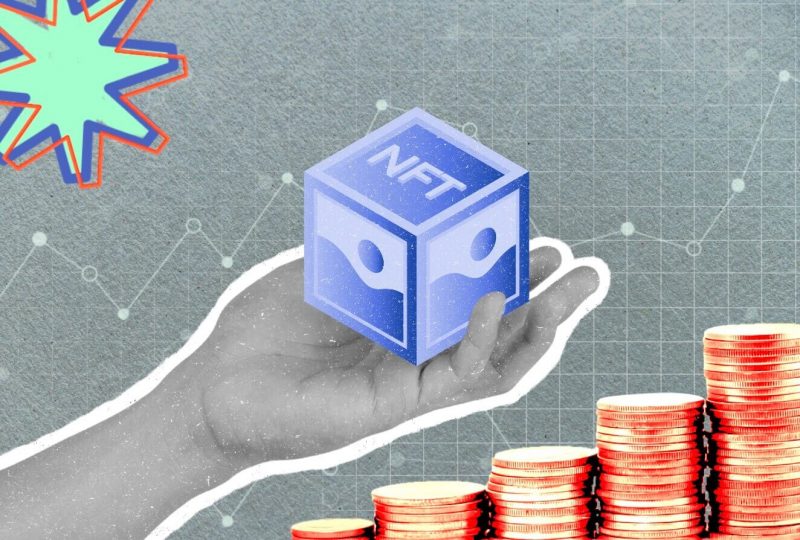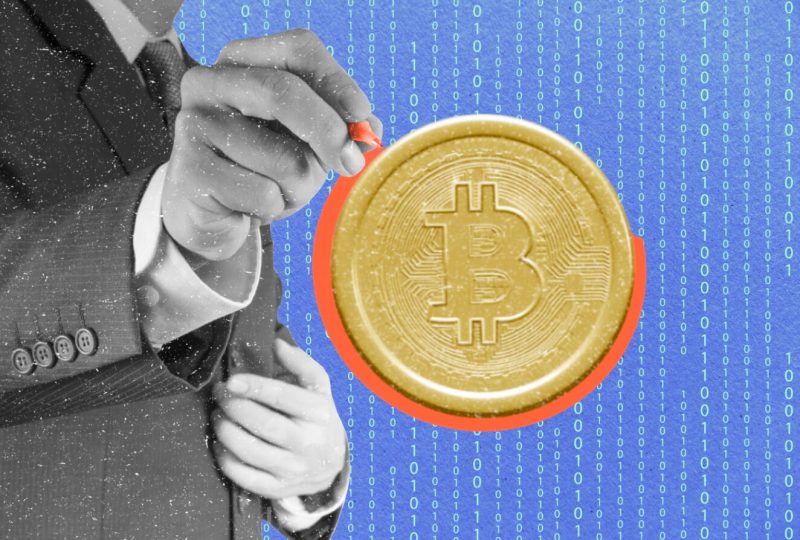What is NFT?
Feb 01, 2022

The realm of digital art and collectibles is being taken over by NFTs. The rise of a new crypto-audience is reshaping the fortunes of digital artists. Celebrities are also hopping on board, seeing this as a fresh opportunity to interact with their fan bases. Digital art, on the other hand, is only one use for NFTs. There are a variety of uses for these tokens, such as a deed for digital or physical property.
What is the Definition of NFT?
Tokens that are non-fungible are referred to as NFTs. This technology suggests that such unusual artworks include a wholly unique and non-interchangeable unit of data kept on a digital ledger that leverages blockchain technology to verify ownership. NFTs are collectible digital assets with a monetary value that can be bought and sold. In the same way that real art does, NFTs have a monetary value.
NFTs are decentralized, similar to cryptocurrencies like Bitcoin and Ethereum. A non-fungible token, on the other hand, is completely unique and cannot be exchanged for another NFT of the same type.
Any digital asset that is easily copied, such as photos, art, music, films, tweets, or memes, can be preserved as an NFT copy. Anything unique, digitally storable, and value can be turned into a non-fungible token. Like any other form of the collectible object, like a painting or a vintage action figure, except that instead of paying for a physical item, you're paying for a digital file and paperwork that proves you own the original copy.
What Is the Difference Between an NFT and a Cryptocurrency?
Generally speaking, NFT is developed using the same type of programming as cryptocurrencies, such as Bitcoin or Ethereum, but that is about where the similarities between them end.
Currency in the form of physical money and cryptocurrencies are both "fungible," which means that they may be traded or swapped with one another. They're also the same in terms of value: one dollar is always worth another dollar and one Bitcoin is always worth another Bitcoin, and so on. Because of cryptocurrency's fungibility, it is a reliable method of performing transactions on the blockchain.
NFTs, on the other hand, are unique. Each NFT is protected by a digital signature, which makes it impossible for them to be swapped for or equated with one another in any way (hence, non-fungible).
How Do NFTs Work?
In the blockchain, which is a decentralized public ledger that records transactions, non-fungible tokens are recorded. Generally, NFTs are held on the Ethereum blockchain, although they may also be stored on other blockchains, such as the Bitcoin blockchain.
To construct an NFT, digital items representing both tangible and intangible aspects must be "minted," such as the following:
— Visual and performing arts
— GIF animations
— Highlights and videos from events
— Collectibles and antiques
— Virtual avatars and video game skins
— A selection of designer footwear
— Music
Even tweets are considered. Jack Dorsey, the co-founder of Twitter, sold his first tweet as an NFT for over $2.9 million, making him the world's wealthiest person.
NFTs are analogous to physical collector's artifacts, only they are digital. As a result, the purchaser receives a digital copy of the painting rather than the original oil painting to hang on his or her wall.
Additionally, they are awarded exclusivity of ownership. That is correct: at any point in time, NFTs can only have a single owner. Due to the unique ID assigned to each NFT, it is easy to verify ownership and transfer tokens between various owners. It is feasible for the owner or creator to store confidential data within them. Artists can sign their work using the metadata of an NFT, for example, by including their signature in the file's information.
How Is an NFT Used?

NFTs are widely utilized by those who are interested in cryptocurrency trading or art acquisition. Apart from that, it has a range of other uses, including the attributes described below.
At the moment, the primary use of NFTs is in the generation and dissemination of digital material. NFTs boost content producers' incomes by enabling a creator economy in which artists cede ownership of their work to the platforms on which it is promoted.
NFTs have grabbed the interest of a number of game developers. NFTs have the potential to provide athletes with considerable benefits. You may spend money on things for your game and then sell them to recoup your investment.
Investment and Collaterals - Both NFT and DeFi (Decentralized Finance) transactions are processed using the same infrastructure. In return for collateral, DeFi programs enable you to borrow money. Both NFT and DeFi are investigating the potential of using NFTs as collateral instead.
Domain Names - NFTs provide your domain with a more memorable and easy-to-remember name. This works similarly to a domain name for a website, in that it makes the IP address more memorable and valuable by increasing its length and significance, as is often the case.
How to Acquire NFTs
It is necessary to obtain a digital wallet that can store both NFTs and bitcoins in order to get started. Because your NFT provider only supports a limited number of currencies, you will almost probably need to purchase some cryptocurrency to get started, for instance, Ether. With the advent of credit card purchases for bitcoin, you may now do it on a variety of sites or crypto exchanges. Following that, you will be able to transfer it from the exchange to the wallet of your choice.
Keep in mind that there are fees connected with each of your alternatives while analyzing them. In order to acquire bitcoin, the vast majority of cryptocurrency exchanges will charge you a fee of some kind.




